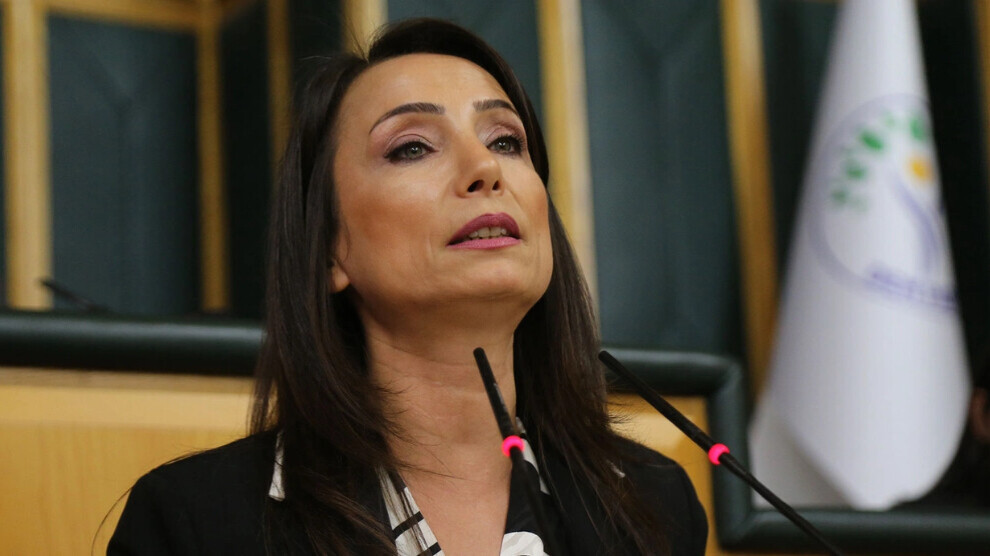Tülay Hatimoğulları’s call to Ankara for a 'Visit to Rojava'
DEM Party co-chair Tülay Hatimoğulları called on government officials to visit Rojava, saying: "We believe it would greatly contribute to the peace process advancing with healthier steps."
DEM Party co-chair Tülay Hatimoğulları called on government officials to visit Rojava, saying: "We believe it would greatly contribute to the peace process advancing with healthier steps."

Tülay Hatimoğulları, co-chair of the Peoples’ Equality and Democracy Party (DEM Party), called on government officials to visit Rojava, saying that they believe such a visit would greatly contribute to advancing the peace process with healthier steps.
While evaluating current developments during her party’s group meeting in Parliament, she also called for the repatriation of the remains of poet Nâzım Hikmet to Turkey. Hatimoğulları said that a step must be taken on this issue, emphasizing that in order to build lasting peace, it is also important to keep memory alive and confront history with courage.
Pointing to global and regional developments, Hatimoğulları stated that the Middle East, being a region where global and regional powers compete for influence, witnesses new developments daily. She said that what is happening in Gaza is, as previously stated, ground zero for humanity, where suffering is at its deepest, and that the events there are full of lessons for imagining the future order. She added that international law has unfortunately become just a piece of paper and that norms have been rendered meaningless. Solving the Gordian knot in Palestine, she said, would resolve many other issues and help bring about stability. She also pointed out that with the support of the UK and the US, a new era led by Gulf countries and Israel is being shaped through wars and crises. The geopolitical structure of the region is undergoing a chaotic transformation. Internal dynamics, power balances, and the roles of actors are being fundamentally redefined. According to her, the outer shell may remain the same, but the inside is rapidly changing.
She further stated that in recent times, three main points have emerged in the Middle East: the violent fluctuations caused by global powers’ influence in the region, the internal conflicts among regional powers, and the crisis of representation among the people. She noted that Kurdish geopolitics, which plays a key role in resolving many of the region’s complex issues, is a way out of the Middle Eastern maze. Those who ignore this doorway, she warned, are doomed to get lost in the labyrinth. The importance of recognizing Kurdish reality, she emphasized, has reappeared before us as a historical necessity not only for Turkey, but also for Syria, Iraq, Iran, and the entire region.
Hatimoğulları said that Turkey’s historical background and geostrategic position have brought its regional role to a critical turning point. She emphasized that it is now very important, urgent, and necessary for Turkey to move from being a party to conflicts to taking on a leading role as a mediator to resolve issues and support regional peace. This, she said, would benefit Turkish society as well as peace in the region. She expressed strong belief in this approach, giving the example of Turkey visiting Northern and Eastern Syria or hosting delegations from there in Ankara or Rojava.
She concluded by saying that such steps would significantly support the peace process to move forward more effectively. She stressed that this is not just about peace between Turks and Kurds or Turkey’s internal peace. She reiterated that they deeply value this issue and have consistently emphasized it. These steps, she said, would make great contributions to the peace of both Turkey and the region. She renewed her call: let us build peace together, let us establish regional peace together, and let us construct a democratic Turkey and a democratic republic together.